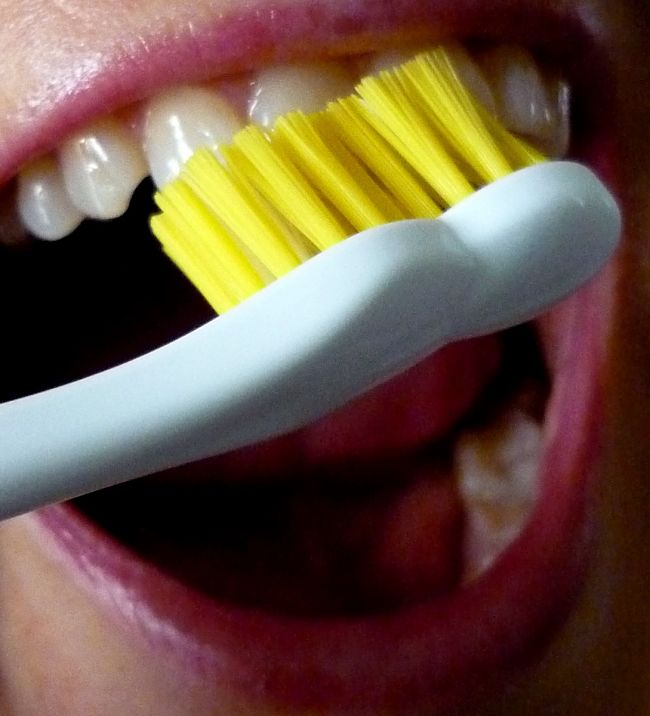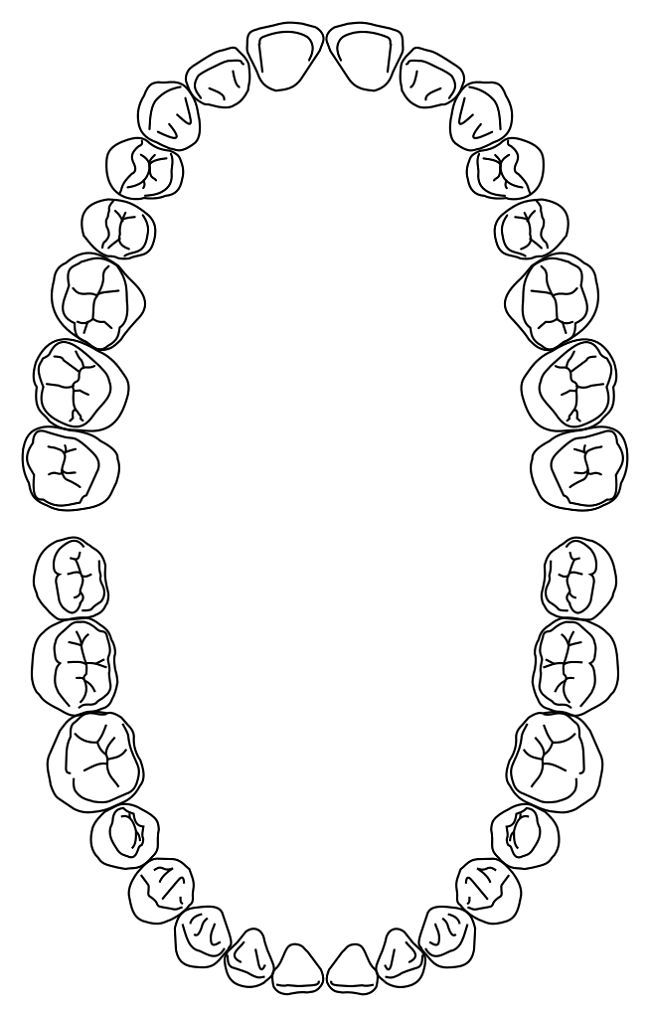Best Time to Brush Teeth is Not Immediately After a Meal
Most people believe that you should bush and floss your teeth as often as possible, ideally immediately after every meal - the more times the better.
The American Dental Association recommends that you clean your teeth twice daily as a minimum.
Many diligent people brush much more often than this, and get their kids to do the same, after every meal, after eating sugary snacks or sugary drinks.
► So what is the right advice?
► Can you clean your teeth too often?
► Should you clean your teeth immediately after eating or drinking?

Recent Research Findings
Recent research studies have shown that brushing too soon after each meal and after drinking sugary drinks, especially for acidic foods and liquid, can do more harm than good.
The same applies to episodes of acid reflux. Brushing immediately after aid reflux can risk damaging your teeth.
The problem is that with immediate brushing, the acid can be pushed deeper into the enamel and dentin (the layer below the enamel), where it can do more harm to the teeth.
In a research study, a group of volunteers was monitored over a three week period examining the impact of drinking diet soda on their teeth. The scientists discovered that dentin losses were higher when the subjects brushed their teeth during the 20 minutes immediately after drinking soda, than when brushing was delayed and took place 30 or 60 minutes afterward.
The conclusion from the study was that people should wait at least 30 minutes before brushing their teeth.
To deal with the acid people should rinse their mouths out with water rather than brushing.
So when is the best time to Clean Your Teeth?
The basic advice of brushing and flossing your teeth twice or three a day still applies, but to wait for at least 30 minutes after eating or drinking acid food and drink.
Most dentists advise their patients to clean your teeth in morning after breakfast, and in the evening after the evening meal or before you go to bed.
Too much brushing can physically wear away your teeth. However, you can brush them six or more times a day using a very soft brush and a gentle motion.
So a compromise is required
Cleaning your teeth after every meal is OK, as long as you use a soft brush and drink water after eating acid foods and drinks, and delay brushing for 30 minutes.
When you eat and drink non-acidic foods it is wise to gently brush immediately after the meal if you want to.
This is because certain food and drinks cause bacteria in your mouth to release acids that are harmful to your tooth enamel within about 20 minutes. If you can remove these residues from your teeth early is will stop the acid from forming and damaging your teeth.
Choosing nutritious foods that are low in carbohydrates and sugar, and are not acidic is good advice for dental health.
Drinking plenty of water also can help wash acidic substances from your teeth and reduce the harmful acid produced by bacteria.
The American Dental Association also suggests that people use an antimicrobial mouth rinse, as well as flossing daily.
What are the 9 Most Common Tooth Care Mistakes?
1. Using the Wrong Toothbrush or a Badly Worn Toothbrush - The important principle is that the toothbrush should be the right size for your mouth and comfortable in your hand. Whether you use a manual or electric toothbrush does not matter as much as the brushing technique. A thorough and efficient brusher can do a great job with a manual toothbrush, but an electric one, can help a bad brusher, do a better job.
2. Not Picking the Right Bristle - The bristles can be too hard to too soft and the basic principle is that the bristles should be stiff enough to remove plaque, but not too hard that they will physically damage the teeth when used properly. Once again it is a matter of technique, but most people should use a brush with soft to medium stiff bristles.
3. Not Brushing Long Enough - Brushing should continue for least two to three minutes, making sure all surfaces are cleaned. The best way to do this is to divide the mouth into 4 quadrants (up and back, top and bottom) and to devote about 30 seconds to each quadrant. Distractions such as watching TV while brushing is a good idea, as well as brushes with built-in timers.
4. Brushing Too Hard or Too Often - Excessive brushing and overdoing it could irritate the gums and may physically erode the tooth enamel. The brushing should be thorough but relatively gentle for two to three minutes, so as to not grind away the teeth and gums.
5. Not Brushing Correctly - The old fashioned method of making long strokes following the gum-line can cause abrasions and wearing of the teeth and gums, especially with are hard action. Position the bristles at a 45-degree angle to the gum-line and do short circular strokes or vibrations.
The action should be to use soft up and down brush strokes rather than horizontal brush motion across your teeth, especially over several teeth. Make sure you thoroughly brush both the outer and inner tooth surfaces, as well as the chewing surfaces. Don't forget to clean your tongue, which can harbor bacteria.
6. Not Starting in a Different Place Each Time - If you start in the same place each time and follow the same routine, there is a good chance you will always miss the same bits. It is better to start in a different place so you make sure you brush every tooth.
7. Not Brushing the Inner Tooth Surfaces Properly - Many people forget to brush the inner surfaces of teeth where most decay starts. This especially applies to the inner surface of the front teeth.
8. Not Following Brushing With a Rinse and Drying Your Toothbrush - It is a little known fact that bacteria can grow on an old toothbrush that is not rinsed properly. Inadvertently, a dirty brush may spread their bacteria over your teeth.
So you should clean the toothbrush thoroughly after you brush. Make sure when rinsing, that you remove any toothpaste residue and shake the brush to remove excess moisture.
Don't use a cap as this will prevent it drying out. Rinsing the brush with mouth wash is also a good idea.
9. Not Renewing Your Toothbrush Often Enough - The American Dental Association suggests that everyone should replace their tooth brush or head for an electric brush every three or four months. Replace them sooner as soon as the bristles look frayed.

